detail profile furio scarpelli
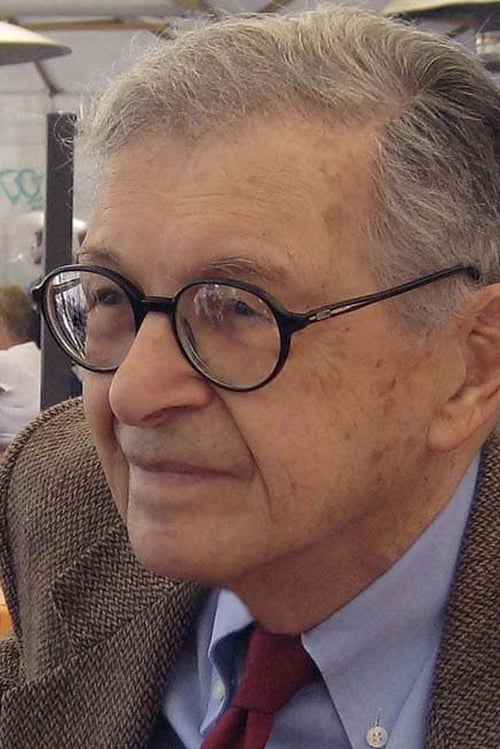
Furio Scarpelli
F. Scarpelli
atau dikenal sebagai
Riwayat Hidup
Furio Scarpelli (16 December 1919 – 28 April 2010), also called Scarpelli, was an Italian screenwriter, famous for his collaboration on numerous Commedia all'italiana films with Agenore Incrocci, forming the duo Age & Scarpelli.
He was the son of journalist Filiberto Scarpelli.
During his childhood he devoted himself to writing and drawing.
During World War II, he started to work as an illustrator for satire magazines, together with Federico Fellini and Ettore Scola, and he met Agenore Incrocci, better known as "Age".
Furio was born and died in Rome, Italy.
In 1949, he started his famous collaboration with Age as the duo Age & Scarpelli, writing some of the first Totò successes until 1952.
Together with Age, he worked on a total of 120 Italian movies.
These include some of the most famous of all, such as Sergio Leone's The Good, the Bad and the Ugly and Mario Monicelli's I soliti ignoti.
After closing his relationship with Age, he wrote several movies with Ettore Scola, and the first works of directors such as Francesca Archibugi and Paolo Virzì.
His third Nomination to Oscar was for Il Postino: The Postman, written with his son Giacomo.
He also taught at the Centro Sperimentale di Cinematografia.
The film Tormenti (2011), adapted from his graphic novel, was released shortly after his death.
Source: Article "Furio Scarpelli" from Wikipedia in English, licensed under CC-BY-SA 3.
0.
Info Pribadi
Peran Yang Di Mainkan Furio Scarpelli
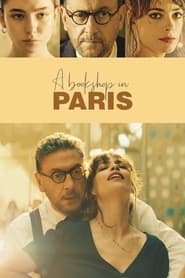 Vincenzo dedicates his life to the...
Vincenzo dedicates his life to the...A Bookshop in Paris 2021
Vincenzo dedicates his life to the bookshop he owns in Paris and to his daughter Albertine, forced to stay home because of an accident occurred to her a few years earlier. One day Yolande, an exuberant, eccentric, funny and beautiful girl, bursts into Vincenzo’s shop. Charmed by her vital energy, the man starts feeling again emotions he’s been chocking-off for too long, and which will make him question his melancholic and somehow suspended way of facing life.
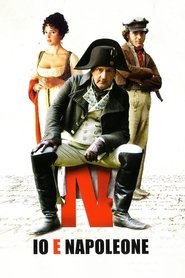 Elba island 1814 Martino is a young...
Elba island 1814 Martino is a young...Napoleon and Me 2006
Elba island, 1814. Martino is a young teacher, idealist and strongly anti Napoleon, in love with the beautiful and noble Baroness Emily. The young man finds himself serving as librarian to the Great Emperor in exile, whom he deeply hates, yet soon begins recording Napoleon's memoirs, getting to know and learning to value the man behind the myth. Among seductions and affairs, expectations and fears, he will craft a precise portrait that nevertheless will not manage to hide a final, inevitable, disappointment.
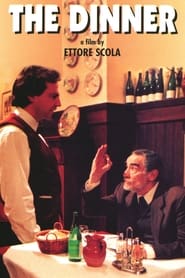 An evening at an Italian restaurant...
An evening at an Italian restaurant...The Dinner 1998
An evening at an Italian restaurant. Hosted by tolerant and relaxed Flora, various parties of middle-class people come in -- large and small, young and old, regulars and tourists, married and single -- to dine, converse, argue, celebrate, make confessions; to overhear other people's discussions, to interrupt them, to sing, listen to music, and enjoy life. The camera, just like the people, moves constantly from table to table, into the kitchen and the back room to observe the staff's petty jealousies and frustrations -- until two hours later it's time for everybody to go home.
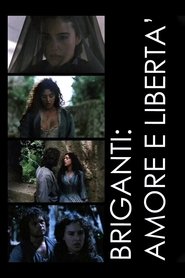 In 1838 in the kingdom of Naples...
In 1838 in the kingdom of Naples...Bandits: Love and Liberty 1994
In 1838 in the kingdom of Naples and the Two Sicilies, Malacarne, gamekeeper of Baron San Germano, kills the bandit Caruso, whose widow gives birth to Giovanni and at the same time becomes the nurse of Costanza, San Germano’s orphaned daughter. Thirteen years later, Giovanni and Costanza fall in love to the jealousy of her uncle, who shuts her in a convent, ordering Giovanni to be killed by Malacarne who has meanwhile become a bandit. Barely alive, Giovanni is taken away by Bourbon soldiers. After Garibaldi’s arrival in Sicily and its union with Italy, Costanza is freed from the convent and returns to San Germano. She is visited by Giovanni and although still loves him, rejects him since she wishes to become a nun. In the meantime, Giovanni kills Malacarne and takes his place. Costanza marries the rich Lo Turco and the next day departs for Naples, but during the journey the carriage is attacked by Giovanni’s band. Costanza flees with him and they leave for America.
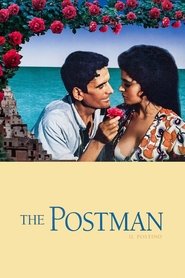 Simple Italian postman learns to love...
Simple Italian postman learns to love...The Postman 1994
Simple Italian postman learns to love poetry while delivering mail to a famous poet; he uses this to woo local beauty Beatrice.
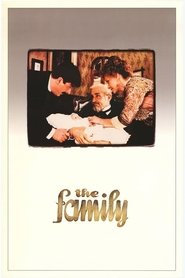 The Family an album with a...
The Family an album with a...The Family 1987
"The Family," an album with a velvet cover, is meant to touch the extended family of man. Formal portraits, bookends in this 80-year saga, enclose the central story, which opens with the baptism of Carlo, a baby in his grandfather's lap, and ends with Carlo as a grandfather with a baby in his arms. And never once do we get out of the house, whose rooms provide the film's structure. Comfort or passion? Carlo couldn't really decide until it was too late.
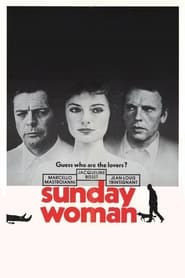 Police commissioner Santamaria is investigating the...
Police commissioner Santamaria is investigating the...The Sunday Woman 1975
Police commissioner Santamaria is investigating the murder of the ambiguous architect Mr. Garrone. The investigations soon drive him into the Torino's high society. Santamaria suspect Anna Carla and at the same time falls in love for her. Lello is the lover of Massimo, Anna Carla’s gay friend. He is following another direction in order to find out the truth, and his results are confusing the Policeman. But another murder happens...
 50 year old Giulio and his 17 year...
50 year old Giulio and his 17 year...Come Home and Meet My Wife 1974
50 year old Giulio and his 17 year old goddaughter, Vincenzina, fall madly in love with each other and soon are wed. Unfortunately for Giulio he walks in on his friend and Vincenzina upon a return from a trip. His jealousy and anger get the best of him and he kicks his wife out of the house. Years pass and Giulio decides to rekindle the love affair with Vincenzina.
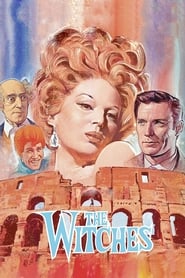 Five short stories loosely dealing with...
Five short stories loosely dealing with...The Witches 1967
Five short stories loosely dealing with the roles of women in society. A superstar actress travels to a mountain resort, only to evoke jealousy from women and lust from men. A woman offers to take an injured man to the hospital. A widowed father and his son seek for a new wife/mother. A man seeks revenge for a woman's honor. A bored housewife tries to explain to her husband that he's not as romantic as he used to be.
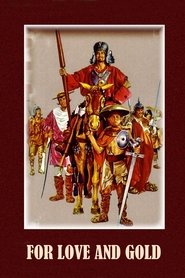 A group of rogues steal a...
A group of rogues steal a...For Love and Gold 1966
A group of rogues steal a scroll granting its bearer the property of the land of Aurocastro in Apulia, a province in the south of Italy. They elect a shaggy knight, Brancaleone from Norcia, as their leader, and decide to get possession of this supposedly wealthy land. Many adventures will occurr during the journey.
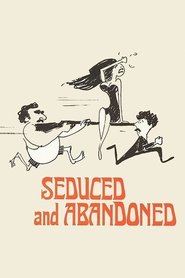 The film presents the tale of...
The film presents the tale of...Seduced and Abandoned 1964
The film presents the tale of Agnese Ascalone, daughter of prominent miner Vincenzo Ascalone, and takes place in a small town in Sicily. Agnese is seduced by her sister Matilde's fiancé, and has a tryst with him for which she confesses and tries to repent, only to be discovered by her mother and father.
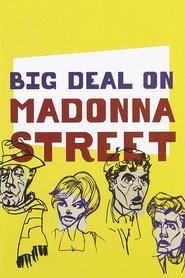 Best friends Peppe and Mario are...
Best friends Peppe and Mario are...Big Deal on Madonna Street 1958
Best friends Peppe and Mario are thieves, but they're not very good at it. Still, Peppe thinks that he's finally devised a master heist that will make them rich. With the help of some fellow criminals, he plans to dig a tunnel from a rented apartment to the pawnshop next door, where they can rob the safe. But his plan is far from foolproof, and the fact that no one in the group has any experience digging tunnels proves to be the least of their problems.
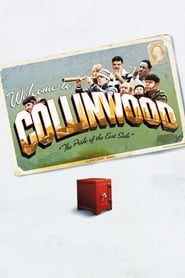 Five hapless innercity lowlifes attempt to...
Five hapless innercity lowlifes attempt to...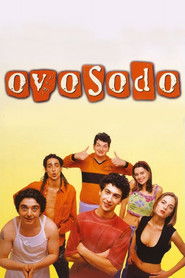 From childhood to fatherhood Piero learns...
From childhood to fatherhood Piero learns...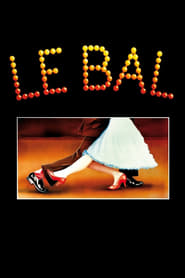 The 50 year story of a ballroom...
The 50 year story of a ballroom...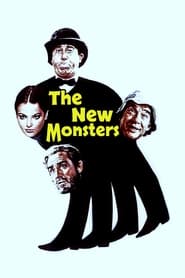 A 1977 Italian comedy film composed of 14...
A 1977 Italian comedy film composed of 14... Three partisans bound by a strong...
Three partisans bound by a strong...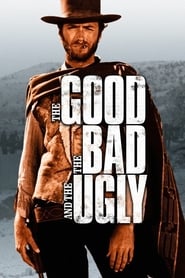 While the Civil War rages on...
While the Civil War rages on...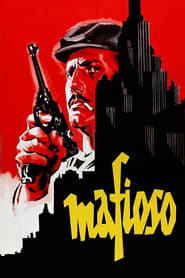 When a goodnatured factory supervisor living...
When a goodnatured factory supervisor living...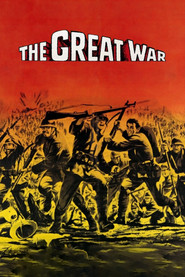 Italy 1916 Oreste Jacovacci and Giovanni Busacca...
Italy 1916 Oreste Jacovacci and Giovanni Busacca...